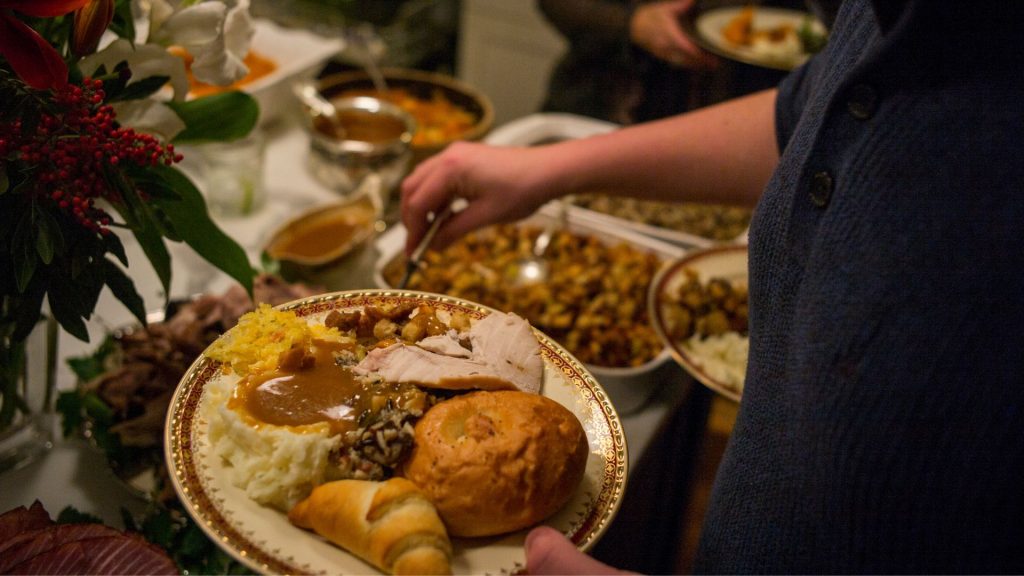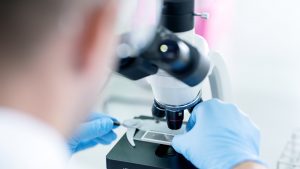How weight loss drugs may change the Thanksgiving dinner table this year

More than 10% of American adults have used GLP-1s, which is triple the rate just five years ago, according to the nonprofit RAND. As doctors prescribe more people drugs like Ozempic and Wegovy, the likelihood of having a family member on it increases, and this could impact Thanksgiving dinner.
While most know the drug helps people lose weight, some may not know how it does that or how it affects the body. Straight Arrow News spoke with an expert to see how the drug may affect Thanksgiving habits and what hosts can do to facilitate those on it.
What do GLP-1s do?
Registered dietitian nutritionist and Academy of Nutrition and Dietetics spokesperson, Caroline Susie, said GLP-1s cause people to feel full much faster. They can also make someone feel uncomfortable if they push past that feeling, which could lead them to take smaller portions.
She said the drug also lowers a person’s “food noise,” or the constant thinking of food. That noise can come as frequent cravings, intrusive thoughts about food, or feeling preoccupied with what, when or how much to eat.
“Many people with long-term dieting histories or metabolic challenges describe it as feeling like food is always ‘on the brain,’” Susie told SAN.
How could this affect Thanksgiving?
Susie said that since the medication makes people feel fuller faster, it could bring changes to Thanksgiving dinner.
“During Thanksgiving, this can translate to smaller plates, slower eating and stopping sooner than you may be used to,” she told SAN.
Another way the medications help people lose weight is by reducing the reward they get from eating, according to Susie. She said this reduces the intensity of food cravings and the “pull” people feel towards higher-calorie dishes.
“People often describe this as ‘the food just isn’t calling my name the same way,’” Susie said.
GLP-1s also reduce hunger between meals by slowing gastric emptying. Susie said this causes food to stay in the stomach longer, leading to fewer hunger spikes, less grazing and a longer sense of fullness.
What can hosts do to accommodate loved ones on GLP-1s?
Susie told SAN that hosts preparing for holiday gatherings should be aware that guests taking GLP-1 medications are likely to eat less than they have in the past. However, hosts shouldn’t take it personally.
“They may take small servings, skip seconds entirely or only try a few items,” she said. “This has nothing to do with the quality of your cooking.”
Hosts should also avoid pressuring guests to “try everything” and just accept that not everyone will, especially those on the medication, as eating too much could make them feel sick.
“Even a few extra bites can cause nausea or discomfort for someone on a GLP-1,” Susie said. “A gentle, no-pressure atmosphere helps everyone enjoy the meal.”
Offering lighter options alongside more traditional dishes can also help people on GLP-1s. Fat-rich and creamy foods often sit heavily on people. Susie suggested offering dishes like roasted vegetables or a simple salad, giving guests more flexibility without changing the spirit of the meal.
But most importantly, hosts should respect their guests’ privacy. If they don’t bring up their GLP-1 use, it’s best not to mention it.
“Not everyone wants to discuss their medication publicly,” Susie said. “If you know a guest is on a GLP-1, keep that information private unless they bring it up.”
The post How weight loss drugs may change the Thanksgiving dinner table this year appeared first on Straight Arrow News.




